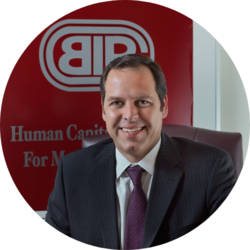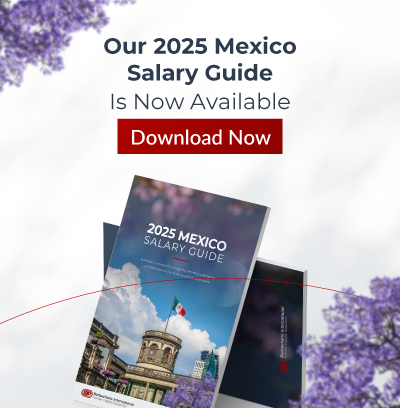
Nearshoring in Mexico is no longer a trend. It’s a long-term strategy that has reshaped how global manufacturers think about supply chains. As more companies expand into hubs like Monterrey, Saltillo, and Querétaro, the conversation is shifting. Tariffs and logistics got them here. But what will define the next stage of success is something harder to import: leadership talent that can thrive across borders.
The infrastructure is in place. Demand is strong. But companies are now learning that having a footprint in Mexico is not the same as being ready to grow in Mexico.
The Talent Bottleneck That Isn’t on the Factory Floor
Most headlines focus on labor availability or industrial real estate. But many of the slowdowns we see aren’t due to staffing or space. They stem from the difficulty of finding the right leaders: people who can manage complexity, unite teams, and align operations with global expectations.
These roles, whether in supply chain, engineering, operations, or general management, demand more than technical skills. They require a deep understanding of the cultural and strategic context in which the business operates.
While Mexico is rich in talent, those with the cross-border experience and bilingual and bicultural skills needed for executive leadership are in high demand and not always easy to find through traditional methods. That’s why more companies are turning to specialized executive search partners with deep expertise in Mexico to fill these mission-critical positions.
When Relocating Leaders Didn’t Work Like They Hoped
A few years ago, relocating senior leaders from the U.S., Europe, or Asia felt like the safest move for companies expanding into Mexico. It made sense on the surface; send someone experienced who understands the business. But that approach hasn’t always gone as planned.
One company we spoke with brought in a U.S.-based operations leader to open a new site in Mexico. He had a great track record, knew the product inside out, and had led large teams before. But once he got there, things started to slip. Communication with vendors was tense. Local employees held back. Small misunderstandings turned into big delays. The team wasn’t clicking, and after six months, very little had moved forward.
It wasn’t that he wasn’t qualified. He just wasn’t the right fit for that environment.
That experience isn’t unique. A recent look at the Mexico recruiting landscape through 2030 confirms this shift: companies are placing greater emphasis on leadership agility, cultural fit, and executive soft skills, not just technical know-how.
We’ve seen it happen again and again: highly capable leaders who struggle, not because they aren’t good, but because they don’t have the cultural fluency or local insight to build trust and momentum.
That’s why more companies today are shifting gears. They’re looking for bilingual, bicultural executives who already understand the rhythm, the expectations, and the nuances of working in Mexico. People who don’t just manage the work, but connect with the people who do it.
It’s Not Just About Language, It’s Trust, Context, and Speed
Bilingual skills open the door. But what companies really need is someone who knows how to earn trust, especially in high-stakes environments like plant startups, operational turnarounds, supply chain transformations, or regional expansions.
In fact, Harvard Business Review points out that cultural intelligence, not just IQ or EQ, is one of the strongest predictors of executive success in global teams. It’s about reading the room, adjusting your leadership style, and aligning people across functions and cultures.
At Barbachano International, we’ve seen firsthand how this plays out. The companies that move fast and sustain performance aren’t necessarily the biggest or the best-known. They’re the ones who recognize that in cross-border operations, leadership isn’t a plug-and-play equation. It’s contextual. And speed comes from trust, not pressure.
What Senior Candidates Want (and What Makes Them Say No)
The executives you’re targeting aren’t just comparing salaries. They’re evaluating your structure, culture, and story. These are the questions they’re asking:
- Will I be trusted to lead or second-guessed from headquarters?
- Is this a long-term investment or a short-term experiment?
- Will I have a seat at the table, or be expected to execute without input?
In many cases, it’s not the compensation that causes them to walk away. It’s the lack of clarity. Forbes notes that nearly half of new leaders fail in their first 18 months and poor cultural fit is one of the top reasons. These leaders want to understand not just what they’re being hired to do, but how success will be supported and measured.
Talent Has Become a Strategic Risk and a Strategic Advantage
Many of the hiring conversations we’re part of now reflect this shift in focus. Companies that paused their investment in Mexico are still moving forward with hiring, but they’re doing it more carefully.
Instead of large hiring pushes, they’re focused on finding the right leadership to help them navigate this phase. The demand for proven executives with cross-border expertise is growing, not shrinking.
And the biggest risk we see? Companies taking too long to decide. In this environment, strong candidates are cautious but not idle. The best talent won’t wait six months while internal approvals crawl through. They want clarity, trust, and purpose.
The Companies Getting It Right
Even with uncertainty around tariffs, politics, and global markets, some companies are gaining traction and they all share one common factor: they’re investing in leadership, not just location.
Companies are:
- Hiring Mexico-based executives with global reporting experience
- Building internal pipelines instead of relying solely on expats
- Moving quickly to secure top talent before competitors do
- Being transparent about their goals and inviting leaders to shape the roadmap
They’ve accepted that policies can change, but culture must be built. That’s the role of strong, well-supported leadership.
Where Manufacturing Leadership Must Go Next
Nearshoring is still a strategic advantage. But expansion alone doesn’t guarantee results. What determines long-term success is the ability to lead well across cultures, across functions, and across borders.
If your organization lacks leaders who can inspire trust and deliver results on both sides of the border, even the best-laid plans can stall.
As Mexico continues to grow as a manufacturing powerhouse, the real differentiator won’t be policy. It will be people. And the companies that win will be the ones who treat executive hiring as a core business decision, not an afterthought.

By Fernando Ortiz-Barbachano
President & CEO of Barbachano International
Barbachano International (BIP) is the premier executive search and leadership advisory firm in the Americas with a focus on diversity & multicultural target markets. Since 1992, BIP and its affiliates have impacted the profitability of over 50% of Fortune 500 Companies. BIP has been recognized by Forbes as Americas’ Best Executive Search Firms and currently ranks #8 and #3 on the West Coast.

